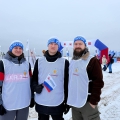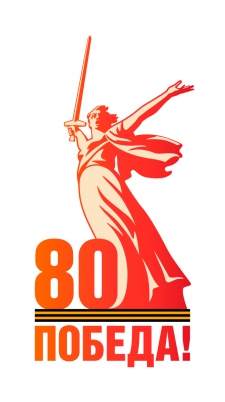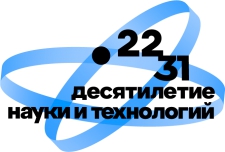Young scientists of the institute took part in the conference "Modern problems of epidemiology, microbiology and hygiene"
|
17 09.2021
On September 15-17, 2021, the XIII All-Russian Scientific and Practical Conference of Young Scientists and Specialists of Rospotrebnadzor "Modern Problems of Epidemiology, Microbiology and Hygiene" (hereinafter referred to as the conference) was held. Young scientists of the Institute Lapin Vladislav Alexandrovich and Kashnikova Anna Dmitrievna took part in the event.
|
More than 220 young scientists and specialists from 32 Rospotrebnadzor organizations, scientific and other institutions of the Ministry of Science and Higher Education, the Ministry of Health of Russia from 20 regions of the Russian Federation took part in the conference.
At the conference, in accordance with the program, 58 scientific reports of young scientists and specialists were heard and discussed on the issues of improving the epidemiological surveillance of dangerous infections through the introduction of risk-based models for predicting the development of the epidemiological situation, epidemiological profiling of microorganism strains circulating in certain territories of the Russian Federation, gray -epidemiological monitoring and assessment of population immunity to especially dangerous and socially significant infections (COVID-19, plague, anthrax, brucellosis, Q fever, cholera, viral hepatitis, enterovirus infection, tick-borne borreliosis, etc.). The results of comprehensive studies on the distribution and mechanisms of the formation of antibiotic resistance in bacterial strains, including hospital ones, are presented. In the scientific works of young scientists dedicated to hygiene issues, the scientific and methodological aspects of assessing occupational risk from the effects of physical and chemical pathogenic factors, the influence of toxic substances based on nanomaterials and heavy metal salts were discussed. The results of research on the development of highly informative methodological approaches for laboratory analysis of the quality of drinking water and food products, including those intended for feeding children; the problems of the spread of cardiovascular, psychosomatic, alimentary-dependent (including allergic) diseases among the population of Russia and ways to minimize risks to human health are considered.
Traditionally, within the framework of the Conference, the competition "The best scientific work of a young scientist" was held. Lapin V.A. "Investigation of the antigenic properties of the recombinant VP1 protein of norovirus" took third place in the "Microbiology" nomination. Report by A.D. Kashnikova "Molecular and epidemiological characteristics of hepatitis C in the Nizhny Novgorod region at the initial stage of the infection elimination program" was noted for the high level of training and excellent knowledge of the material.






